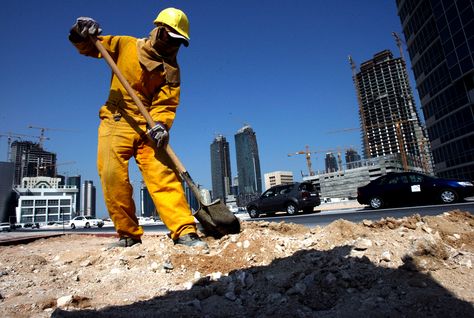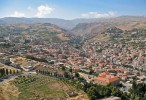An international trade union group has claimed that 4,000 migrants workers are likely to die as Qatar gears up for a construction frenzy ahead of the 2022 World Cup tournament.
The International Trade Union Congress (ITUC) has claimed at least 500,000 extra workers are set to be called on to help complete stadiums, hotels and infrastructure in time for the World Cup kick off.
In comments published by the UK's Guardian newspaper, the ITUC claimed the annual death toll among labourers in the Gulf state would rise to 600 a year unless government makes urgent reforms.

| Advertisement |
The paper said the ITUC has based the estimate on current mortality figures for Nepalese and Indian workers who form the bulk of Qatar's 1.2 million-strong migrant work force.
The warning comes just a couple of days after a Guardian investigation revealed that 44 Nepalese workers died between June 4 – August 8 this year, around half from heart failure or workplace accidents.
The Indian ambassador in Qatar has said 82 Indian workers died in the first five months of this year, the paper added.
Sharan Burrow, the general secretary of ITUC, was quoted as saying: "Nothing of any substance is being done by the Qatar authorities on this issue.
"The evidence-based assessment of the mortality rate of migrant workers in Qatar shows that at least one worker on average per day is dying. In the absence of real measures to tackle that and an increase in 50 percent of the migrant workforce, there will be a concominant increase in deaths.
"We are absolutely convinced they are dying because of conditions of work and life. Everything the Guardian has found out accords with the information we have gathered from visits to Qatar and Nepal. There are harrowing testimonies from the workers in the system there.
"The 2022 World Cup is a very high profile event and should be implemented with the very highest standards and that is clearly not the case."
In response to the Guardian investigation, authorities in Qatar told the paper that it would investigate the findings and would not tolerate breaches of labour law.









 Search our database of more than 2,700 industry companies
Search our database of more than 2,700 industry companies









